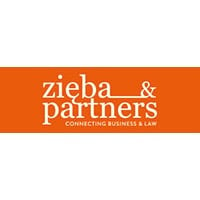

Deputy head of legal division | Banca Transilvania




Mihai Rotaru
Deputy head of legal division | Banca Transilvania
Deputy legal director – head of legal consultancy department | Banca Transilvania
What are the most important transactions and litigations that you have been involved in during the last two years?
Although every transaction is relevant in its own way and it is not always fair to discriminate among the deals closed taking into consideration criteria such as the ticket size or the number of
the involved parties, I would say that the most visible and relevant transactions that I have been involved in the last time are pre and post actions regarding the M&A process between Banca Transilvania, as buyer, and Volksbank Romania. Pre and post actions regarding the M&A process between Banca Transilvania and Bancpost, as a core member of Banca Transilvania’s negotiation team and credit related legal coordinator. Also, the sale of one of the biggest non-performing loan banking portfolios in the Romanian market, such as Arena 1, Arena 2 and Castrum.
What changes have you made to the workings of the legal department during your time in your current role? How has that affected the wider company?
From an early stage I had the opportunity to learn from my mentors that a legal professional has a double role within the organisation – he
is a gate keeper and, at the same time, he is a team player. In time, I’ve developed and implemented a personal concierge concept regarding the role of the legal function within a banking organisation. I named that “Legal Fixer”, and it implies a much closer relationship with the business departments.
Under the Legal Fixer’s umbrella concept I’ve implemented several projects, such as the successful centralisation of legal credit related function, launched three legal training products designed for specialised business units that counted more than 1,500 colleagues trained by my team, and as a consequence saw a decrease of legal rework of more than 50%.
Other projects include “Adopt a Branch” – in which each legal advisor adopted a branch with lower than average results in what concerns legal rework, and shared responsibility and appreciation for that specific branch’s future evolution. I helped launch the first legal call centre, designed to service all the urgent needs of the bank’s network, as well as “Legal Tip of the Week” – now a highly appreciated weekly legal newsletter, that highlights a hot topic related to the network’s current concerns. I have also created a Legal Fixer avatar profile on our Facebook-like internal platform, which is available for providing
answers and promotes legal good practice to colleagues.
How important have “soft skills” or personal attributes outside of technical legal skill been to the team’s success, and which “soft skills” do you feel are most important for an in-house lawyer to possess?
The paradox is that even though we are living in the automation and AI era, soft skills are more and more required for any kind of professionals, particularly for legal ones. A good in-house lawyer needs to anticipate the needs of his internal clients, and therefore, he needs to be highly emphatic.
Of course, for a successful legal team, you need to cultivate the seeds of self-actualizing need, in order to obtain a more fitted team governed by creative thinking principles, ready to use and to combine the most modern tools and interdisciplinary concepts with the core principles of the legal system, and thus, creating the shortest and the most innovative way for success.
In the same time, I strongly believe that a really good legal professional is, first of all, an excellent critical thinker that can dialectically asses all stakeholders’ perspectives on one given topic, and a good real story teller, in order to transmit, together with the logic of his argument, the emotion specific to the real impact generated by the consequences of taking an action in a certain direction.
Even though I’m mentioning these skills at the end, I believe that one of the most important soft skills to be possessed by a trustful colleague are the positive attitude and really good quality of communication. If you add those qualities to core professional skills, trust me, you will obtain a dream team!
What are the most important considerations you have when recruiting new team members?
When recruiting new team members, I do not look for a perfect match on the spot, but I try to foresee the future personal value of that person inside the organisation. More precisely, if that person has what I call true grit, has sufficient theoretical basis that will allow him to start the professional journey and he is not afraid to admit and to learn from their own mistakes, then that person is ready to join my team. My personal policy is to put the “will” component in front of “experience”, especially when you have an ecosystem that can generate skill transfer in short term.
If you had to give advice to an aspiring in-house lawyer or GC what would it be and why?
I believe that you should think as in-house lawyer experience as the best professional experience that you can have as a lawyer. You will learn directly what are the internal client’s concerns and expectations, and this will provide you a huge advantage, even if you have the opportunity or choose to develop your career inside the targeted company or as an external consultant. You will be the one that will really know what that client (internal or external) needs, and you will be the most suited to deliver the desired solution. Above all, take the nomination and the listing in prestigious professional publications, such as the GC Powerlist, as an extra, and focus on how you can do your job faster, smarter and better, and recognition will come soon after that!